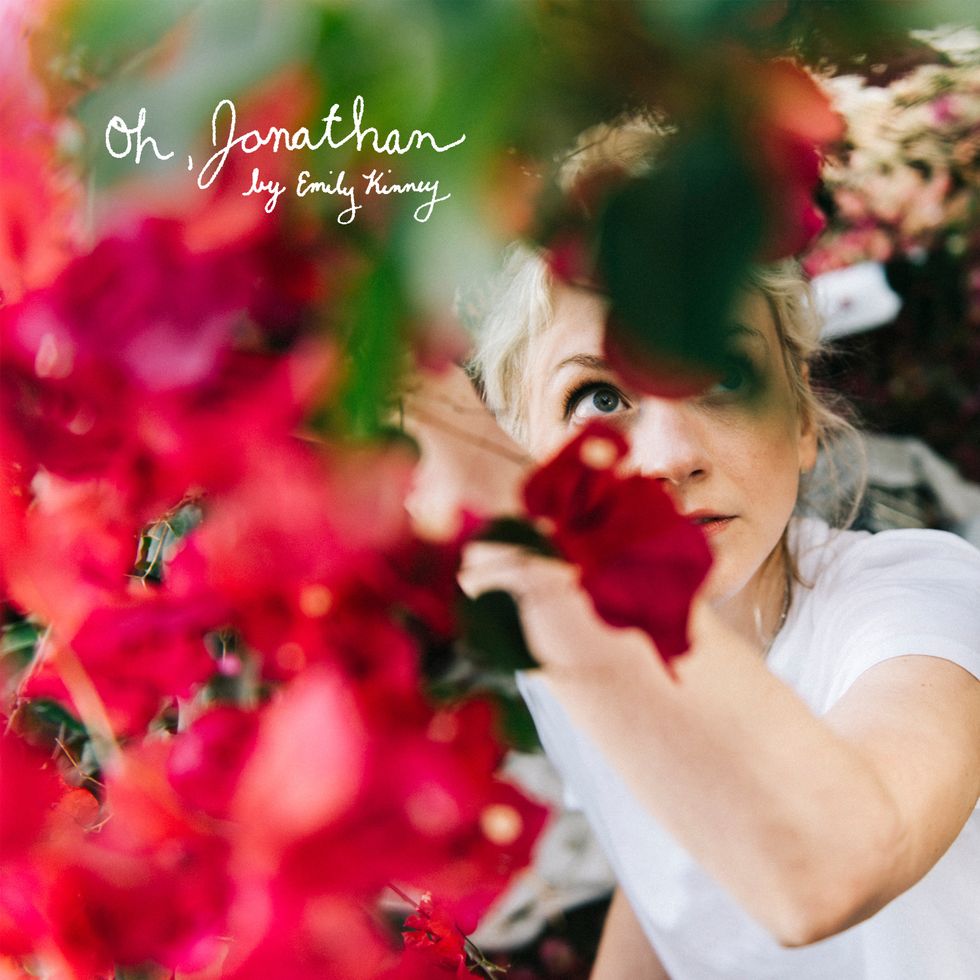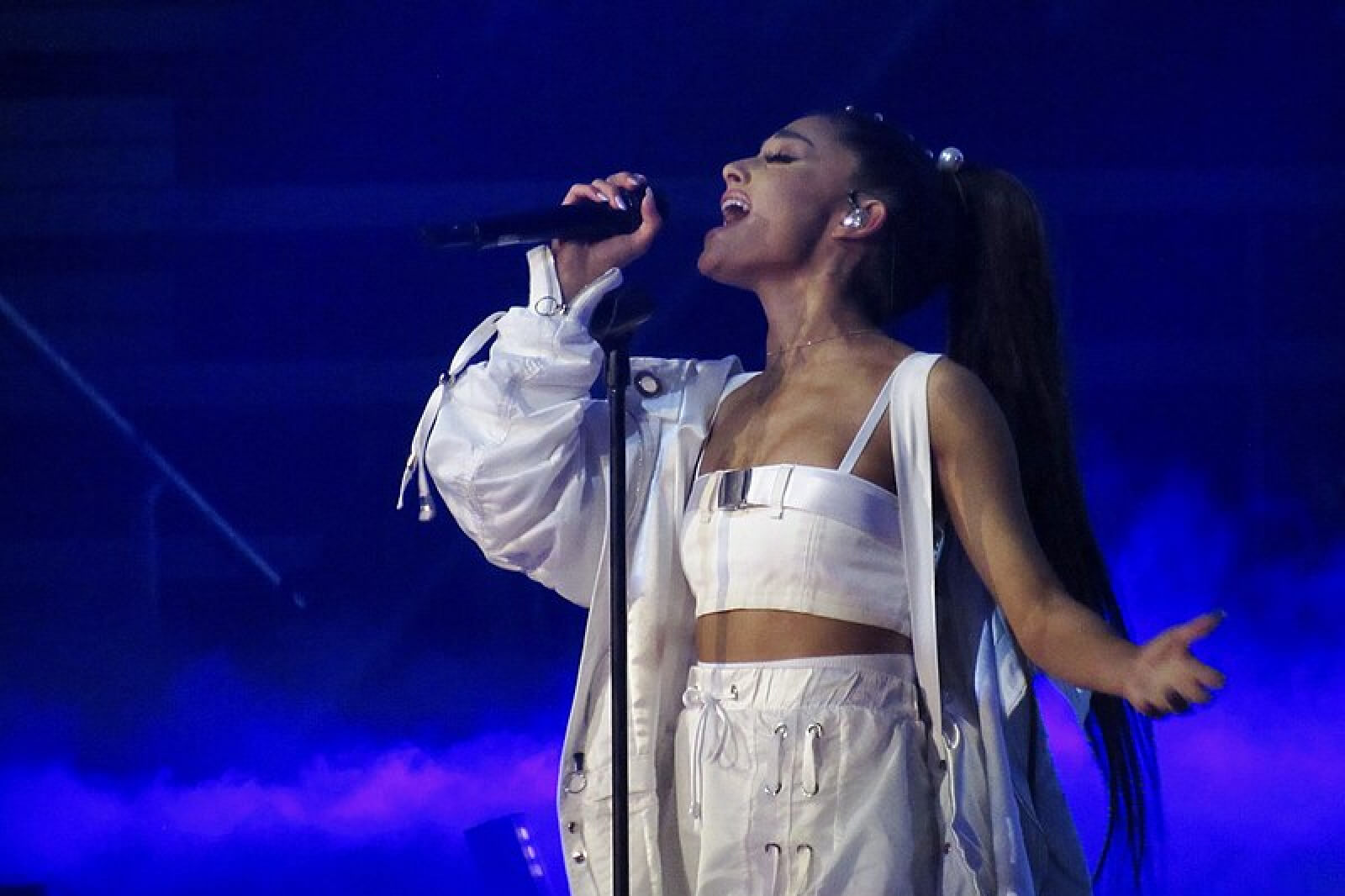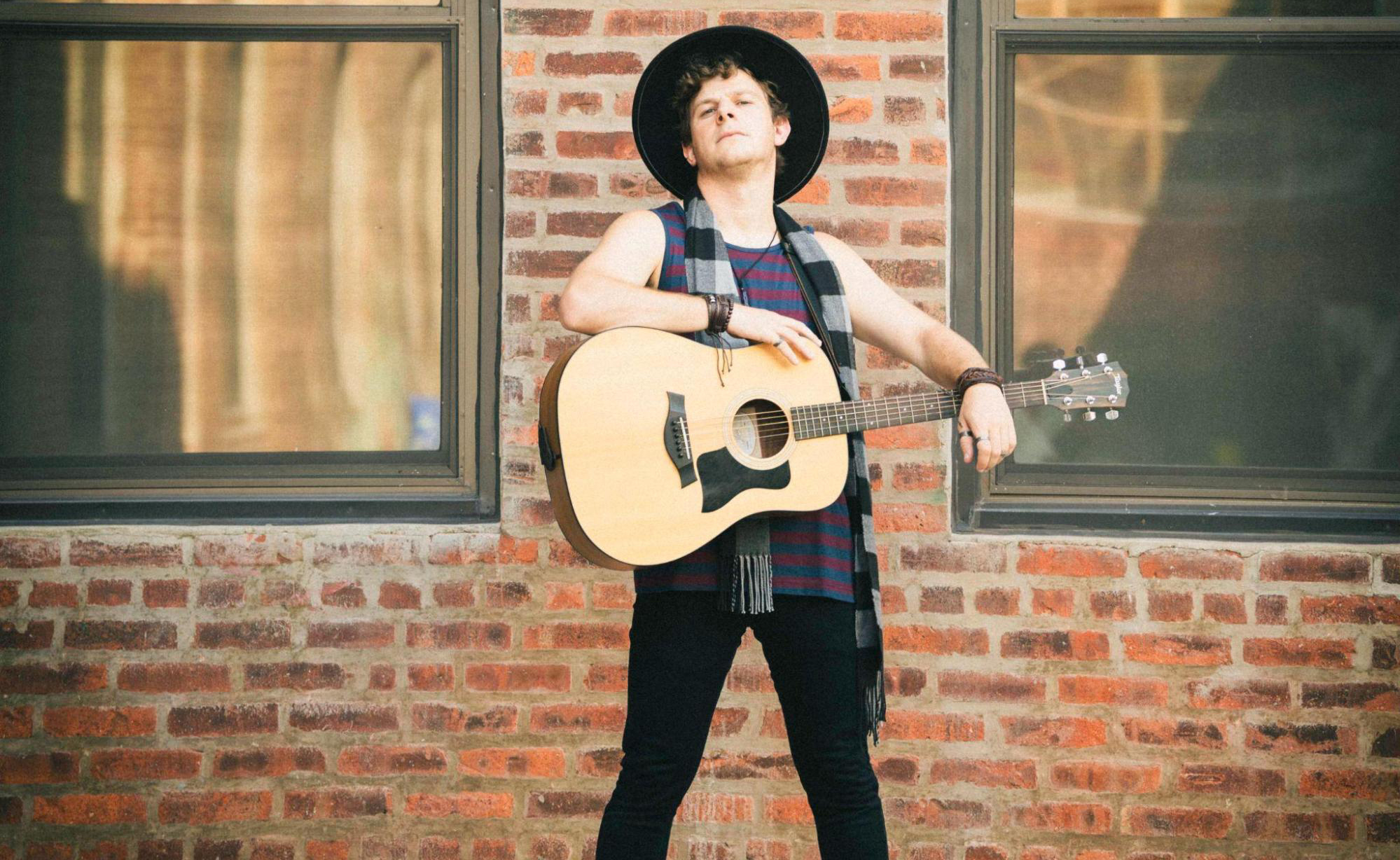Interviews
Interview | Emily Kinney Chronicles On-Again, Off-Again Romance on New Album, ‘Oh, Jonathan’
23 Aug, 18

Press Photo
Kinney waxes brilliantly poetic with bigger and bolder melodies, laced with arsenic lyrics.
If you’re anything like Emily Kinney, you’ve tried to tape a relationship back together many times. In the moment, when the heartache throbs in your chest and rattles your rib cage, you think such an effort has true healing powers. But it’s all in vain. Armed with her third full-length album, Oh, Jonathan, out tomorrow, she paints each brittle, painful edge with an extravagance so rich, the on-again, off-again relationship at the core comes alive like a Vincent Van Gogh painting.
The record stands as her most lush, stroked with gentleness and resolve not to be forever bound by the past. It’s her first album in three years, which can seem like an absolute eternity in the music world. “There were just a lot of changes, you know, as far as management and figuring out how I wanted to release it. This album I used a different producer, but before I found what I wanted to work with, I was doing a lot of writing sessions and getting to know new people to decide what direction I wanted to go,” Kinney tells Popdust over a recent phone call.
As the listener can perhaps surmise upon a first listen, Oh, Jonathan witnesses the singer-songwriter galloping beyond her usual stylistic boundaries into a dizzying mixture of heart-stock instruments and synths that wash up at your feet. It’s an ocean of sound, sweeping, foamy and organic to her current state of mind, body and spirit. In a surprising turn, Kinney had actually been working on another album altogether when a new theme, message, and sonic template began to emerge rather naturally in her songwriting. “I felt pretty strongly about the songs that were sort of gathering around the same sort of message and relationship. Last year, around the time I put out ‘Mermaid Song,’ it felt like this was the album that I should put out next,” she says.
Oh, Jonathan ⎯⎯ produced by Benjamin Greenspan (Skoles, Fences) ⎯⎯ possesses an almost dream-like quality, a thread line of grace and delicacy. “Soda Glass,” which “I didn’t think was very good,” she admits, recounts a relationship’s rosy sweetness, as she yearns for that intoxicating love again. “Our soda glass love could only take so many falls / And my paperback heart can only take so much rain before it drowns, dissolves, gets dragged down the drain,” she sings on the hook, framing the slow burning-out in a shimmering glow. Written during a trip to Toronto, Kinney had no intention of recording it initially.
“Ben said, ‘Oh no, this is one of the best ones. I love this one,'” she remembers. “It just came to be that the songs that seemed really good were ones about this relationship and this time in my life. I wrote it on the guitar, which you don’t hear much anymore. A lot of the parts went away. It’s mostly keys. This one went through a lot of different phases.”
Where the title song “Jonathan” burns the skin with weathered whispers, “Drunk and Lost” whirls into the stars with severe rock propulsion. But it’s “Loser,” peppered with off-kilter percussion and trickling of synths, that exposes Kinney in her most audacious, unapologetic form. “How does it feel to have a small dick?” she pokes, seething but fragile, “’cause by now I’ve seen others…” She hurls such harsh insults as a way to detach herself, destroying the feelings of aching love with freshly-culled dynamite. Her concerted endeavors to cut the lies that bind is hot-blooded and burdensome.
Below, Kinney discusses the decision to scrap her previous album, her emotional headspace and how Paul McDonald has inspired her own work.
Was it a tough decision to switch gears from your previous, unreleased album to Oh, Jonathan?
You know what? No. At the time, it felt like a relief because I felt like before I had been trying out a lot of stuff, and I’d had different managers and maybe different labels. I really wanted to get better and find the best way to release this music. I would ask people their thoughts, and in the past, I had made it by myself or with my friends. Now, I would get notes, so I would maybe send a song to someone and then they would say, “Oh, maybe do this, make it more of this.” I was taking those notes in, and then, I got to a point when I wrote “Mermaid Song” and didn’t care anymore.
I had a very clear idea of what sound I wanted. This other album I had been working on was in lots of different pieces but not like a consistent sound and certain message. Originally, ‘Oh, Jonathan’ was going to be an EP, but I just kind of kept gathering more material that was reflecting on this relationship and on other things that this person would say to me, which came up in the lyrics. It started to become very clear. So, actually, when I made that decision, it made everything easier. I just sort of stopped asking for people’s input. All of that was really important to get to that point.
When you’re making something, you have try all the ways and then get rid of everything. Sometimes, that will happen when you’re making music in the studio. You’re like, “Oh, what if there could be this sound,” and you try everything and then you go, “Oh actually, no, take away that. It’s too cluttered.” That kind of happened, as far as the people. It got smaller to where it was basically just me and Ben.
You said that you went through a couple of different potential producers for this album. How did you ultimately get linked up with Benjamin Greenspan?
Ben was someone I had tried out a song with. It was actually “Back on Love,” and I loved the way it sounded so much. I also just really loved working with him and ended up picking him. I kept being like, “I don’t even want to try this out with anyone else.” I had other songs that I tried out with other producers, and it would be great but there was just something about him. We also get along really well, and there was a comfort right away. I feel like I have a very eclectic music taste. I love country music and rock music and some pop-punk. Then, of course, I like girl singer-songwriters. Ben has a broad taste in music, too. We can pull from our experiences and understand each other.
This album essentially chronicles an on-again, off-again relationship. What was your headspace during the writing and recording of the songs?
It’s been different. I mean, it would depend on the day and what I was working on. The album is reflecting on probably the span of three or four years. It was very on- and off-again to the point where we’d date someone else. And then when that relationship ended, we ended up back in each other’s lives. Some of the songs are newer, and some are actually a little bit older. I did do most of them in the studio before ever performing them live. I’m so ready to be past that chapter. [laughs] I’m sure many people can relate to that relationship that you can’t really count on in an everyday way. Although it was a very meaningful relationship, and I’m very thankful for the relationship, it was also one that I couldn’t count on. I’m ready to be done with it. Sometimes, it’s strange to go back and be like, “Oh man, I was so excited or so upset.”
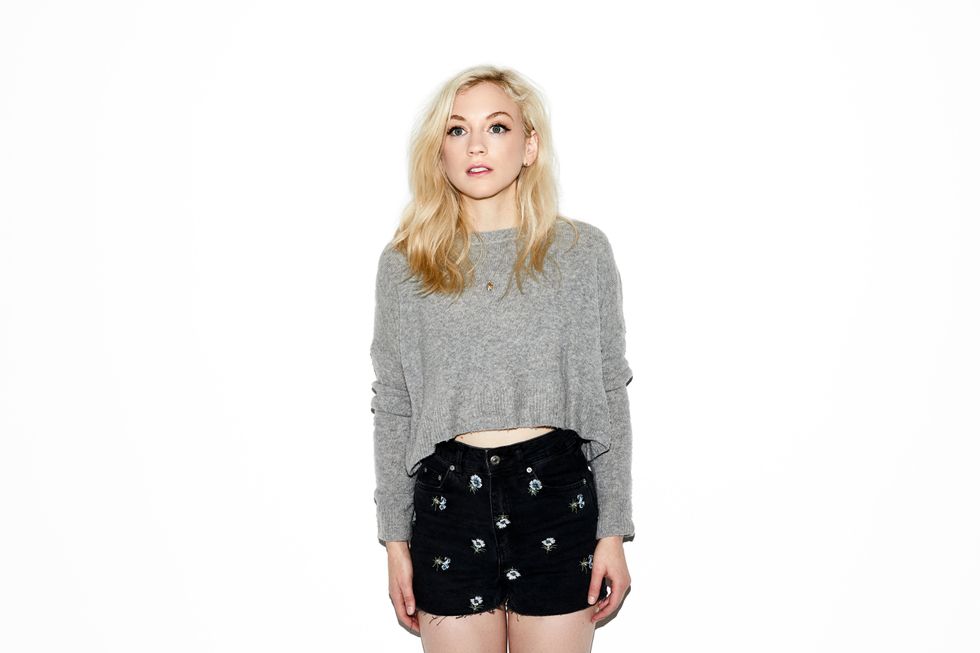
Previously, you noted how you wanted the production of this album to have more air and space. What was the process of making those choices in style and arrangement?
I was trying lots of different things, and when we made “Mermaid Song,” we used more synthesizers. There’s a theme of water for me on the album. I wanted sounds that sounded like water, and I felt like in my last albums, I would write songs, go hang out with my musician friends and they would help to create the guitar parts and this and that. I would fill up the spaces, and by just having me and Ben, I feel like there weren’t quite as many parts floating around. I know that I write a lot of lyrics, and sometimes, they can be hard to digest or catch. So, I really wanted the lyrics and melody to fit on top of a light sonic landscape that at times feels like water. That’s what I was going for.
I also wanted it to feel cool, like something I would listen to in my car. That all really informed the direction that I ended up going with. Throughout the album, there’s like little moments that I was like, “Oh, I could imagine that being water.” With “Boy Band Hero,” the first bar of music has little programmed parts. The idea was that it sounds like a sack of water
The water-like quality is present in “Drunk & Lost,” too, with the drums really driving the song.
I came up with this pretty simple guitar riff, which then completely went away. It was almost a very rhythmic song. I would say it started out almost more as poem or a spoken word piece. Once we got to the studio, we changed it a little more.
“Loser” has such a biting lyric and confidence to it in how you write about this past relationship. What led you to write this song in such a way?
It was actually a song that I wanted to throw away. Through this process, Ben and I become really good friends. When I decided that I was going to make the theme of this album, ‘Oh, Jonathan,’ I started searching through poems that I had written. I’ll keep voice memos and little scraps of songs. I’ll also write a lot of songs and then never listen to them again. When I was in a certain place, those were more for myself, not something I necessarily wanted to share. I wrote this song in Shoreditch, London at the Ace Hotel. They give you those guitars sometimes in the room. I started traveling around Europe by myself. I was there for a convention for ‘The Walking Dead,’ but then I wanted to use this opportunity to explore and go to the museums in London and go to Paris. I was really bummed out that night. Before I had left to go on the trip, I had had plans to meet up with this person. I really wanted to see them, and the plans fell through. I was just feeling very reflective and down.
That was a moment for me where I was thinking about how there’s something about getting over someone where you have to almost make yourself not like them. So, the song is very much low blows. Obviously, I really care about (this) person, and sometimes, it sounds mean. But I would say it’s more reflective of my mental state at the time. It’s a very personal song and one I wasn’t even expecting to necessarily share. But it seemed to complete a certain section of the album for me. That song is a turning point. The next two songs, “Mermaid Song” and “Boy Band Hero,” are about moving forward.
Musically at least, “Loser” has a bizarre Billy Joel-leaning feel to it underneath the production.
[laughs] Wow. Really?! When I was a kid, I remember I did listen to Billy Joel a little. I remember I even sang one of his songs for a talent show. Maybe that was somewhere in my mind.
The production is almost off-kilter with the oddball use of percussion over top of piano. How did that come together?
The first drum that comes in is actually programmed drums. Sometimes, what we would do is we would start in the studio and do programmed drums to begin with and then real drums on top. It’s this sort of weirder, computer-y sound. I liked that, especially with that song feeling a little hard to listen to. A real drummer would be really flowing, and the song does have moments like that where it flows. I like the way that the programmed drums felt for some reason; it felt like it hurts a little bit.
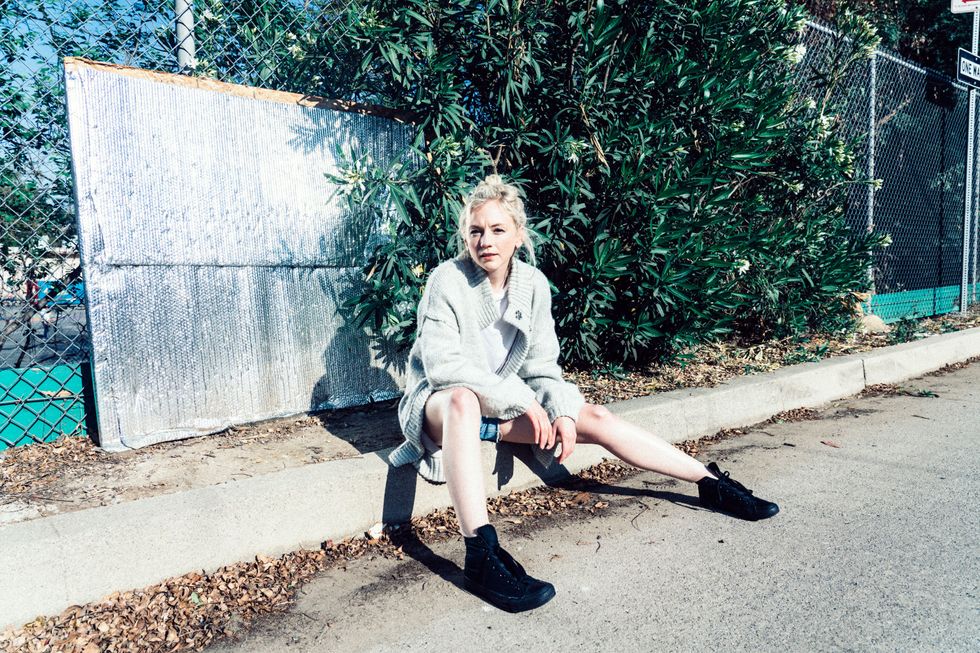
Later in the song, a blast of horns comes in. What a cool creative choice.
My friend Stewart [Cole] plays a trumpet solo. He then layered another one on top. With my last two albums, I would listen to them and realize there’s no time to absorb all the things I’m saying. This is too much. That was one of my own notes to myself. [laughs] I don’t think it’s a problem. People seem to love that. This time, a goal of mine was to try to have faith and let that impulse to fill every moment go to the side a little bit. That was a moment where I was like, “Oh, here we can let all the things that I’ve said just sit.” You have to absorb them for a second. I also thought it just kind of added a certain character. I sort of imagined that trumpet as a sad, old man. [laughs]
Many of these songs have a ton of layers. Have you already plotted how you’ll play these live?
So, I’ve really only played these songs live once. The first time I played them was an experiment. Ben had all these samples, and I was going to have to figure out how to recreate those. Many people use tracks and loops. We started out in rehearsal doing that, and I came to realize that although I love those sounds recorded, I don’t necessarily love them live. I started taking away stuff.
What matters most are melody and lyric. It was figuring out what worked in a recorded song and where I could make the vocals sit on top of the layer of sound in live performance. Things are weighted differently. The tour will be different than what you hear recorded. I like real instruments live, more than I like a loop or a track. I liked the way that as a band, you can flow. The songs live on tour are going to be paired down. They’ll be simpler. It’ll be fun. I’ll keep many of the cool parts, but maybe you’ll hear more of the guitar and the way I wrote it a little more. Maybe it’ll have a little little more weight in a certain way.
How has working with Paul McDonald in The Sweetheart Deal influenced your solo music?
He’s one of the first people who I can do a writing session with. I like doing writing sessions with people, but I always find that you do have to really be able to be yourself completely. I always want to collaborate or be a good collaborator, so sometimes I don’t necessarily go, “Actually, I want this word or I want this melody.” You compromise a lot. That’s just the nature of a writing session, which can be awesome. But the ones that I actually end up wanting to put out into the world tend to be ones that I wrote by myself because I got the exact word I want.
Paul is one of the first people who I feel like I can really, truly collaborate with and write a song while also getting to be myself in the song. He would write a verse and a chorus. He’d be staying at my house in L.A. or I would be staying at his place in Nashville or something. He’d be like, “Oh, I wrote a little bit of a tune today. Want to hear it?” Of course, I did. Then, I’d be like, “Hey, you want me add on a second verse or help?” He is always writing and having good ideas.
He’s definitely really inspiring, and it’s really fun to have a side project. It feels like way less pressure. You have someone to help you make a decision with this and that. We’ll remind each other that making music is fun. It’s not rocket science. [laughs]
Follow Emily Kinney on Twitter | Facebook | Instagram
Jason Scott is a freelance music journalist with bylines in B-Sides & Badlands, Billboard, PopCrush, Ladygunn, Greatist, AXS, Uproxx, Paste and many others. Follow him on Twitter.
POP⚡DUST | Read More…
Popdust Presents | Get Fetch with the Cast of ‘Mean Girls’ on Broadway
READY TO POP | Ava Max, Bright Light Bright Light & Stasney Mav Make Bid for Song of the Summer
Popdust Presents | Stela Cole Will Absolutely Blow Your Mind
